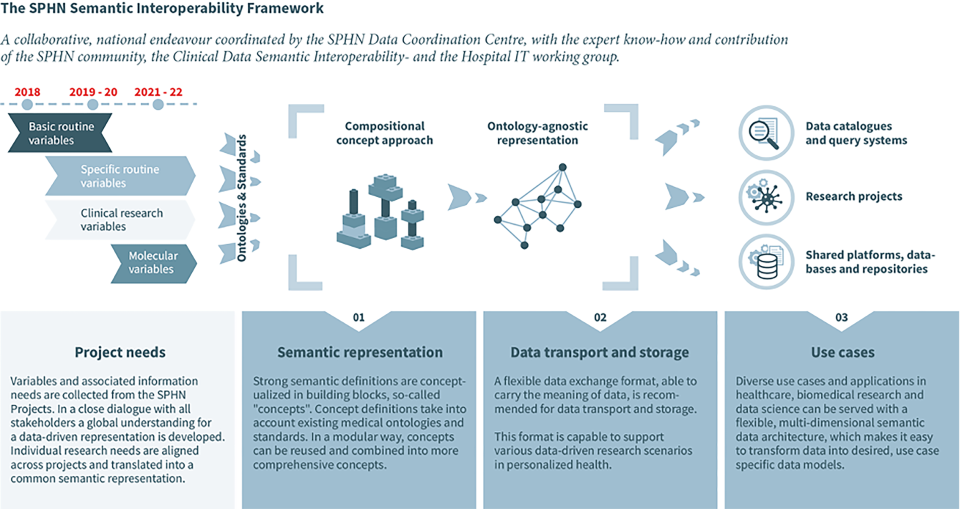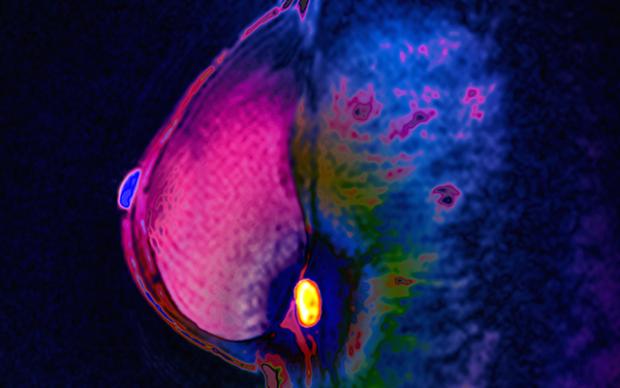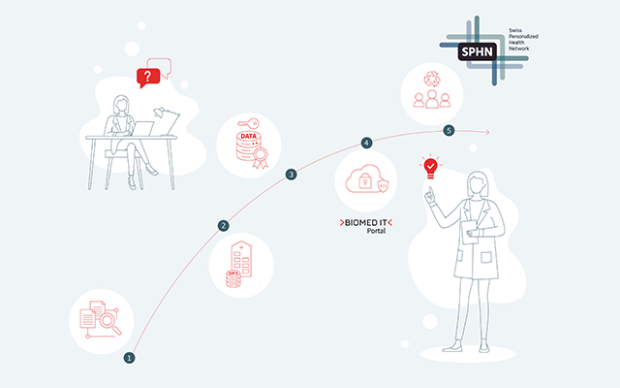Focus on the group’s mission
SIB's Personalized Health Informatics (PHI) plays a key role in the development of the Swiss personalized health landscape. Its role is to facilitate data-driven biomedical projects and discoveries, by establishing mechanisms for nationwide interoperability and responsible sharing of health-related data. To support this mission, it built the essential national infrastructure backbone of a scalable and sustainable research environment and established the technical part of the Swiss Personalized Health Network initiative (SPHN).
With SPHN’s now moving to a sustainable infrastructure, thegroup continues to implement Swiss-wide FAIR data standards and to coordinate BioMedIT, the national IT platform enabling secure health-data exchange and processing for research. PHI also delivers training in the fields of interoperability, data semantics, FAIR data as well as information security.
Cross-institutional collaboration
During the new funding phase of SPHN (2025-2028), and to further consolidate this national infrastructure, SIB continues its successful collaboration with the Swiss Academy of Medical Sciences, who is responsible for the SPHN mandate. Acting as the technical unit of SPHN, PHI keeps close contact with all SPHN funded projects and infrastructure, supporting cross-institutional collaborations throughout the country, and interfacing between all health-data research stakeholders with regards to technical, semantic interoperability and FAIR data.
BioMedIT and infrastructure implementation
Given the sensitive nature of health-related information, research using patient data calls for high levels of security and data protection in Information and Communication Technology (ICT) infrastructures. It also calls for specific processes and expertise, in order to fulfil stringent legal, regulatory and ethical requirements. The key challenge here was to provide researchers with an integrated solution. In close collaboration with the network partners, the PHI group has setup, and now coordinates BioMedIT to provide all authorized researchers in Switzerland easy access to collaborative analysis of confidential data without compromising data privacy.
Data privacy, IT security
When dealing with sensitive health-related information, data protection and IT security are of paramount importance. These aspects are thus at the core of SPHN and BioMedIT. Together with the BioMedIT nodes and security experts, PHI ensures that developments in relation to the network fulfil the highest standards to ensure ethical and legal compliance.
Read about SIB’s legal expertise on Open Research Data in the biomedical context
The group also collaborates with the private sector to conduct analyses of health-care data while fully safeguarding patient privacy. Specifically, PHI works with anonymised patient data housed within the secure BioMedIT environment, and provides only aggregated, summary-level results to private-sector partners so that their research questions can be addressed without compromising individual identities.
More on the collaboration with Novartis on cardiovascular-disease risk factors
Data standards and semantic interoperability
To enable the FAIR use of health data for research, the PHI group, in collaboration with SPHN partners, has developed the SPHN semantic interoperability framework and a corresponding tool stack. This includes for instance the SPHN connector tool to enable faster sharing of clinical data in the standard adopted nationwide.

Metadata catalogues and feasibility tools
To make health-related data “Findable” and to facilitate feasibility assessments and study planning for researchers, the PHI group supports the cataloguing of meta-data into appropriate directories, with for instance:
- Swiss cohorts into the international Maelstrom Catalogue
Datasets generated by SPHN-funded and SPHN-related projects into the SPHN Metadata Catalog, easily explorable through the SPHN Schema Scope, which provide a visual representation of the data schema.
Training and information
In the realm of SPHN, the PHI group develops and supports the production of various training materials regarding:
- FAIR health-related data for research
- BioMedIT: research with sensitive data
Group Members
View all our group members here











